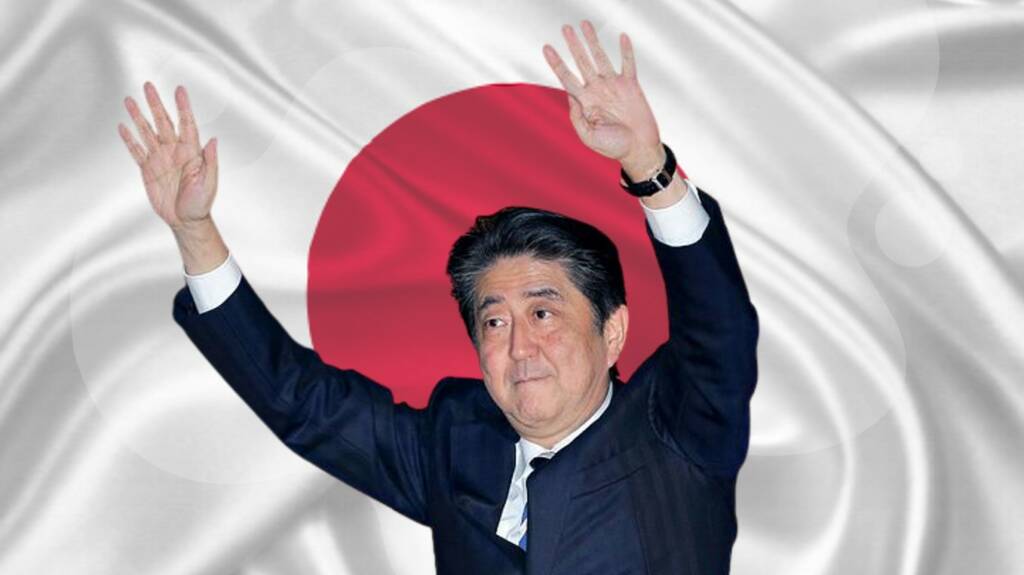Shinzo Abe, former Prime Minister of Japan, has returned to the fray by assuming the role of a true Kingmaker in Japanese politics. Abe will lead the largest faction of the ruling Liberal Democratic Party, Hosoda faction, from as early as November 11 in the capacity of faction’s chairman.
Hosoda faction to become Abe-Faction:
Interestingly, before assuming charge of the PM office in 2012, Abe used to be a member of the Machimura faction, which was the predecessor faction to the Hosoda bloc. Hosoda faction has always advocated Abe’s return to the PM’s office, and Shinzo Abe is believed to wield great influence over the faction.
The Hosoda faction had thrown its weight behind the Abe-backed candidate in the 2021 LDP presidential elections as well. Abe had convinced many of the Hosoda faction leaders to support Sanae Takaichi’s presidential bid, who later assumed the charge of the LDP policy chief.
Read More: Shinzo Abe – The Father of the QUAD has tasked himself with the freedom of Taiwan
Abe’s return as the Kingmaker of Japanese politics bears two important messages, each for Japan’s foreign policymakers and Prime Minister Fumio Kishida himself.
Kishida’s dubious China stand:
Kishida is a well-known China dove and many analysts have predicted that he would shy away from adopting an assertive foreign policy against China and instead strive for engaging China on contentious issues. On October 4, while announcing his new cabinet, Kishida committed himself to a “more careful and tolerant politics”, dropping hints of steering his country away from the policies of his predecessor Shinzo Abe.
Disagreements between Kishida and Abe:
Another sign of tensions running hot between Kishida’s and Abe’s factions was the appointment of Matsuno Hirokazu as chief cabinet secretary by PM Kishida while Abe was backing Hagiuda Koichi. The selection of Kobayashi Takayuki to front a newly created ministry of economic security was also seen as a sign of resistance on Kishida’s part.
Moreover, Kishida in October had also lambasted former PM Shinzo Abe’s economic policies and had pledged to steer his country away from “Abenomics.” “Abenomics clearly delivered results in terms of gross domestic product, corporate earnings and employment. But it failed to reach the point of creating a ‘virtuous cycle’. I want to achieve a virtuous economic cycle by raising the incomes of not just a certain segment, but a broader range of people to trigger consumption. I believe that’s the key to how the new form of capitalism is going to be different from the past,” he added.
Although Kishida showed his commitment to stand up against Chinese belligerence in the region and around Senkaku Islands, many feared his stand would considerably get softened on the China front. Kishida hails from the most liberal faction of the LDP party that explains his tendency to avoid the more nationalistic, conservative approach of other senior LDP figures.
But Abe knows how a liberal and less nationalistic leader at the helm in Japan could easily impede Tokyo’s efforts towards consolidating the democratic world’s might against China. Japan today stands at a critical juncture, where it looks well poised to shred the post-World War pacifism and embrace the more important role of a net security provider in the region.
Abe gets control of the steering wheel:
Also, the Kishida government has pledged to revise the National Security Strategy of Japan in late 2022. If Kishida’s dovish China policies get to make their way into Japan’s national security strategy, Japan would find itself landed in troubled waters in long run.
Hence, Abe’s consolidation of power in the ruling LDP party will help Japan’s foreign policy and economic policy be in line with Abe’s vision of Japan’s role on the World stage. Whether it be a China dove or a China hawk in the PMO office, Abe will always prevail; and his policies will continue to usher in peace and freedom in the Indo-Pacific region and beyond.
